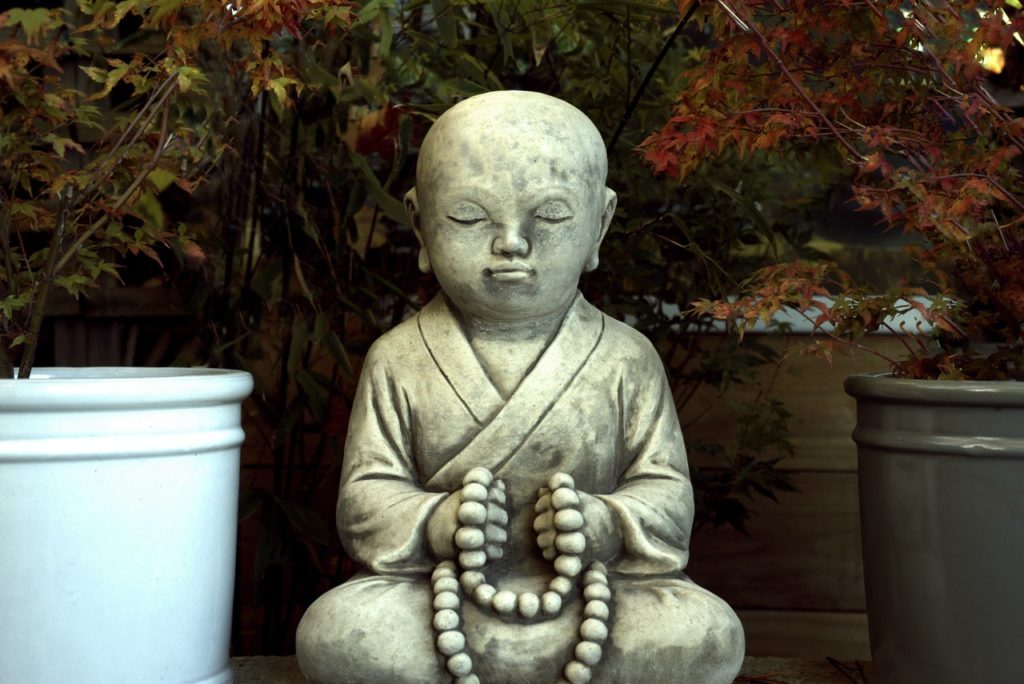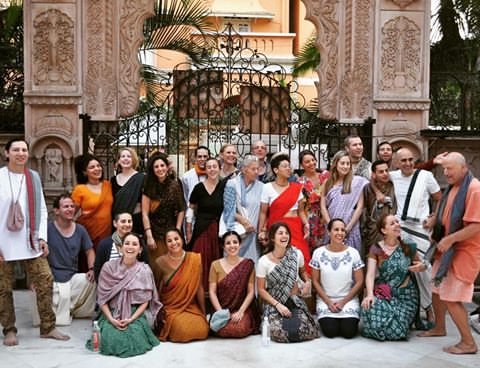What I Learned About Religion and Spirituality-as a Practising Monk
The French Catholic writer Charles Péguy said, “Everything begins in mysticism and ends in politics.”
I’ve always harboured the greatest mistrust and suspicion towards all forms of organised religion.
I’ve also forever been seeking – “truth” and “meaning” and “purpose”. Today, I’m a monk in the International Society for Krishna Consciousness.
It has been a long journey. Here’s what I’ve learned along the way.
Institutions are a necessary evil
Institutions are slow, bureaucratic, corrupt and frustrating. They can at times not only protect but actually enable wrongdoers who know how to manipulate the “system”. They can become preoccupied with money, power, and politics. Religious institutions are not immune to these pitfalls.
Yet, institutions are necessary if something lasting has to be achieved in this world. We need them to perpetuate ideologies, organise resources and mobilise men to action.
As soon as any spiritual revelation grows beyond an individual’s fleeting sentiment and is shared amongst individuals, seeking to affect lasting transformation in a large number of people’s lives, an institution is born.
Ignorance, prejudice and bigotry are universal human problems
Terrible atrocities have been committed in the name of religion. Religious terrorism, persecution of minority groups, marginalisation of women to name a few.
Yet, extreme or fundamentalist beliefs, either deliberate or misguided, which result in antisocial behavior by becoming blind to evidence in the service of ideology, are not religion-specific phenomena.
Secular ideologies have similarly been taken to an extreme with negative consequences. The wars and genocide resulting from fascist nationalism is a case in point.

Religious practitioners are not perfect, neither should we expect them to be
Many a time, the actions of people who claim to be very religious are completely at odds with what they supposedly believe in and so vehemently preach others should do. Religious people are rightly expected to be far better and exemplary in their actions.
To see them fail to live authentic religious lives in accordance to their espoused values and ideals is difficult indeed. How can one genuinely believe in certain principles yet struggle to abide by them?
While it is tempting to demand perfection from people, it is ultimately naïve. We need to reconcile our trust in people with the reality that people are flawed. Balancing the ability to know right and wrong with the capacity to forgive when someone doesn’t live up to the standards set for them requires immense maturity.
“Religion” is misunderstood, misused and abused. So is “Spirituality”.
“Religion” is thought of as external and formal. A mere social convention. A stifling set of rigid rules and archaic rituals with no place for curiosity, independence, critical thought or freedom of expression.
It conjures an image of a box, labeled Hindu, Muslim, Christian or Jew with cult-like uniformity of practice and belief inside.
“Spirituality”, in contrast, has become “anything that you want it to be”.
Alternative medicine, self-help, long walks on the beach, yoga retreats, mindfulness, detox diets, just being a good person, caring for the environment, traveling, trying an eclectic mix of customs and rituals from exotic traditions, tarot cards, crystals, aromatic oils, psychedelics… The list is endless.
Both these perceptions are partial and problematic.

Real religion and authentic spirituality go hand in hand
There is no denying the importance of spiritual intuition. It is indeed the beginning of any transcendental pursuit. However, it has to be balanced by a considerable amount of self-discipline, rational enquiry and practical guidance.
So called “spirituality” which makes no such demands and leaves me free to do whatever I prefer in the moment, without any obligation or accountability, is meaningless and unfulfilling.
We need a clear spiritual goal and a clear path to attain it.. This is the meaning of spiritual science and it is universal. Real religion provides entrance to this science. It provides a coherent and well-structured belief system which built on a solid moral and ethical foundation, necessary for pursuit of transcendental knowledge. It prescribes practices which have stood the test of time and proven themselves effective.
In a religious community, there are checks and balances. There are guides who have walked the path before, know the pitfalls. They can show us the way and help us not fall into the traps that our own mind lays for us. It holds us accountable. It demands humility and surrender. It deflates our ego.
To truly make spiritual progress, you have to declare what you believe and behave accordingly. You have to let someone other than yourself scrutinize whether your spirituality is coherent and integrated in your life.
Genuine spirituality needs to be informed by genuine religion.
“D-I-Y, Lone-Wolf” spirituality can be psychologically & emotionally damaging
If someone claims to have spiritual intuition of the existence of something greater than the self, but insists that it is a purely personal truth, divorced from the broader community, it is solipsism masquerading as spirituality.
A spirituality which is about my self-realization, my liberation, my emancipation, and my salvation, and makes no demands to co-operate and work together to realize its potential in the world, is narcissism in disguise.
Trying to separate our individual inner spiritual life and communal, outer, material life creates a dichotomy which can be damaging.
According to a study published in the British Journal of Psychiatry, “People who have a spiritual understanding of life in the absence of a religious framework are vulnerable to mental disorder [dependence on drugs, abnormal eating attitudes, anxiety, phobias, and neuroses].”

Concluding thoughts
The spiritual impulse and longing is inherent in the human psyche. To tread on this path is difficult. The road is narrow and bumpy. We all have our weaknesses, obsessions and neuroses which can quickly spin out of control without the support of others.
Why try and walk it alone?
Religious traditions have debated, wrestled with, and tested their belief systems, practices, and rituals since antiquity. They continue to scrutinize and refine their teachings. They analyze its philosophical, psychological, socio-political, cultural, and economic impact. Such traditions form an integrated whole.
Why reinvent the wheel and try to piece everything together by yourself?
Being spiritual but not religious is like saying I am a scholar, but I don’t read. Or to give another example, it is like wanting to learn an extreme sport without the help of an instructor, refusing a safety net, and no one around to take you to the hospital if you meet an accident.
Why take the risk when you don’t have to?
Not all religions and religious institutions are rigid and fanatical, or numb and comatose. There are thriving, vibrant and supportive communities where members take care of each other’s spiritual and material growth. They strive collectively to make a positive impact on the whole universe.
Why not be a part of something greater than yourself?
Belonging to a community, any community, not just a religious one, does not equal having to agree with their worldview in its entirety. The idea that we should or even can find a group with whom we agree on everything needs to be given up. We are all individuals, with personalities, and that’s what makes life interesting–not just material life, but our religious lives as well.
In truly religious communities, individual personalities are not stifled but encouraged. Variety is not just tolerated but celebrated. Diversity is not seen as a threat but an axiomatic truth.
How do I know? I know because I am part of such a community! Is it perfect? No. Not by a long shot. But it is my spiritual home and I belong here.
A (Very Brief) Introduction to Bhakti Yoga
I am a practicing bhakti yogi. Bhakti-yoga has been taught and practiced for millennia within a tradition commonly associated with what people call Hinduism.
But, as people connected to Hinduism will tell you, bhakti-yoga is not constrained by any sectarian ideas. Rather it is founded on a universal spiritual science that can be accommodated within any religious tradition.
Mantra meditation and bhakti yoga do not require adopting any specific religion in the external sense. There are even instances of people adapting mantra meditation to names of God in other traditions.
At its core bhakti-yoga transcends all religious differences, going to the heart of all religion which is – To know and to love God!



